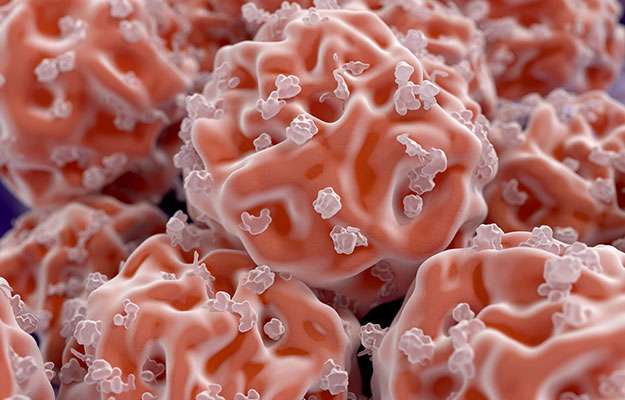The human body is capable of self-healing. But what if we could use regenerative medicine to speed up the healing process? Exosome treatment research is growing at the forefront of regenerative medicine, despite its origins as a topic of academic interest. Like other promising therapies, exosome therapy can kickstart the human regenerating capacity.
RELATED: Move Over, Stem Cells! Why Exosome Therapy Is About to Take Over Anti-aging
3 Reasons Why Exosome Therapy Is Leading the Research for Regenerative Medicine
Understanding Exosomes and Exosome Therapy

Exosomes are the small vesicles released primarily by stem cells. They serve as messengers to deliver essential signaling proteins and genetic information from one cell to another. The information that the exosomes deliver tells our cells to enable certain functions or react in a certain way.
Genetic disorders, chronic and degenerative illnesses, and the natural aging process can impair our cells’ ability to communicate. Exosome therapy improves cell-to-cell communication to promote healing.
Exosomes for exosome therapy are extracted and sterilized from donated human mesenchymal stem cells (MSCs). Exosome solution contains valuable substances that can be administered through intravenous therapy (IV therapy) or injected directly into the treated area.
Since exosome treatment can avoid all the shortcomings of stem cell therapy and still leverage a natural regenerative capability from stem cells, this therapy might become the future for regenerative medicine.
Exosome Therapy Can Be a Superior Alternative to Stem Cell Therapy
Stem Cells and Stem Cell Therapy
Stem cells are the body’s raw materials. They are the cells from which all other cells are generated. Stem cells can be found in embryos, umbilical cords, adult bone marrow, and fat tissue.
Stem cell therapy uses stem cells to stimulate the healing of diseased, dysfunctional, or damaged tissue. It involves injecting stem cells into specific cells in the body to trigger the healing process and build healthier cells.
For example, stem cells could be injected into a person’s heart muscle to treat cardiac problems. The implanted healthy heart muscle cells may then repair the damaged heart muscle.
Shortcomings of Stem Cell Therapy
As efficient as it might sound, the prevalent problem with stem cell therapy is its safety. It’s challenging to integrate foreign live cells into a complicated system like the human body. In regenerative medicine, the use of blood-forming stem cells for patients with blood production disorders is the only stem cell therapy that has acquired FDA approval.
Stem cell therapy is reported to have caused multiple cases of adverse events. The most severe case involves a kidney failure patient who developed tumors after stem cell therapy, eventually leading to nephrectomy. Another case includes three patients with age-related macular degeneration (AMD) who suffered severe visual loss after injecting stem cells.
Exosome Therapy as a Safer and More Effective Alternative to Stem Cell Therapy
Exosomes are incapable of replicating or transforming into malignant cells or other types of damaging cells. They are less inclined to provoke an immune reaction. Moreover, they are not affected by viral infection. That is why exosome therapy appears to be a safer alternative to stem cell therapy since it causes a lower risk than live stem cell transplants.
Exosome therapy might also be more effective than stem cell therapy. Since exosomes (typically 30-150 nm in diameter) are much smaller than stem cells, they can circulate much more quickly through the body to reach the damaged area and trigger healing.
Exosome Therapy Can Serve as a New Approach to Combat Aging
Aging is a significant risk factor that contributes to the progression of various degenerative illnesses. According to a review, exosome therapy might be a novel way to battle aging since it can improve age-related diseases. However, the detailed mechanisms in which exosomes can help combat aging remain elusive. Further exosome research is necessary to convert preclinical findings to clinic results.
RELATED: Plasma Exchange and Anti-aging
Exosome Therapy Can Offer a New Way to Treat Cardiac Damage
Cardiovascular diseases are the leading cause of death and disability in many countries. Stem cell therapy has been proposed as a potential approach to treat cardiac damage. However, this therapy shows several shortcomings and fails to benefit large clinical trials significantly.
According to a review, exosomes benefit injured hearts by protecting cardiac muscle cells in acute and chronic ischemia. Their beneficial effects result in infarct size and fibrosis reduction, blood vessel growth stimulation, and alteration in immune function. As a result, exosome therapy appears to be a potential option for cardiac regeneration as an alternative to stem cell therapy in the post-infarction period.
Understanding the role of exosomes has enabled researchers to expand the scope of treating various diseases without the adverse effects of stem cell therapy. Although exosome therapy might need further investigation to reveal its detailed mechanism, its possibilities are open to exploring.
Yunique Medical provides FUNCTIONAL MEDICINE for optimized health and performance. We offer customized, scientifically advanced treatments to create a new state of human thriving. Why be ordinary when you can be optimal?
HUMAN 2.0 begins here!
Contact us to schedule your FREE consultation at one of our three locations in Florida – Ocala, Fruitland Park (The Villages), and Daytona.
UP NEXT:

